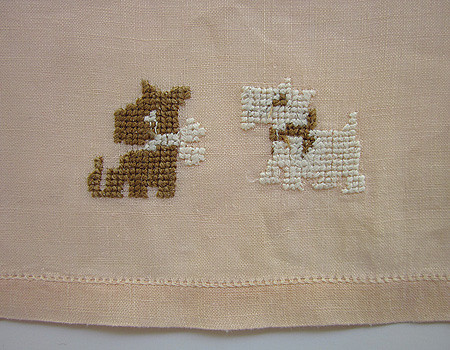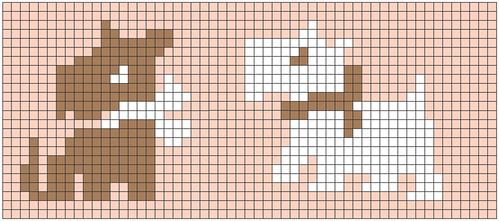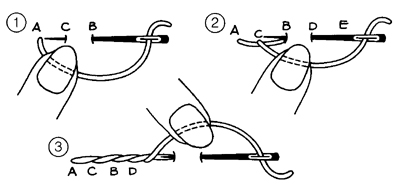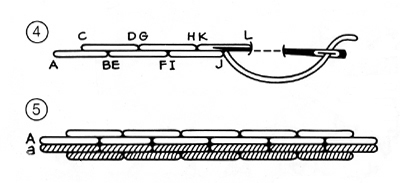
I first became aware of Susie Ghahremani's illustration work when I was an art director—I think she may have sent a postcard in hopes that I'd find an assignment for her in the magazine I worked for. I very much regret that that didn't happen because we might have become friends sooner than we did. We met again a few years later through her online business Boy Girl Party. She's an award-winning artist from San Diego, CA whose work combines joyful imagery with highly intricate hand-painted patterns. Her love of nature, music, and textiles come together in each painting and illustration, delivered with the detail and soul of a crafter. You can read more about her at boygirlparty.com.
So, why am I writing about an illustrator on a blog about needlework? Because she's going to be offering embroidery patterns based on some of her drawings, that's why. For now the very limited edition patterns are only available for purchase at her shows. And there's one coming up next weekend!

Susie's agreed to take a few minutes out of her busy schedule to answer a few questions for us about the show and the patterns, some of which you'll see illustrating this post.
Tell us about your upcoming show.
The show is titled "Clear Skies and Cloudy Days" and it runs from August 10th - September 2nd at Land Gallery in Portland, OR. It includes more than 100 of my latest works—paintings, drawings and mixed media such as cross-stitch.
I'll be flying up to Portland this week for the opening reception on Friday from 6-9 pm. Land Gallery, located in the historic Mississippi neighborhood, is run by the owners of the iconic indie shopping website buyolympia.com and features new, original artwork from a fantastic stable of upcoming and established independent artists.
(Land Gallery, 3925 N. Mississippi Ave., Portland, OR 97227 (503) 451-0689)

What inspired you to do embroidery patterns (a great idea, by the way)?
Thanks! Years ago, I used to host craft nights at my house with my girlfriends, and my friend Irene Stone (http://irenejoy.etsy.com) would always bring over her cross-stitch projects (based on incredible patterns she would make herself). Watching her work on them (and being the lucky recipient of some of her handiwork!), I thought to myself how it's a nearly extinct craft, and how I'd enjoy the irony of bringing extinct animals to life with that medium. I asked her if she'd want to collaborate on a series just for fun (my drawings, her stitching) and that's how it began! At first we only did a dodo bird, sabre toothed tiger and woolly mammoth (which are the first three patterns we're releasing) but now (two years later) we have more than 20 x-stitch-extinct animals in the works, ten of which Irene has stitched already.
After we collaborated on a few of the finished pieces, we decided it would be fun to share the patterns with others so they could reach a wider audience.
At the Portland show, I'll be showing all the drawings from this project and 10 of the finished cross-stitched pieces in addition to over 100 other paintings and drawings by me.
And the patterns are part of a kit; what’s included in that?
Basic instructions, an easy-to-follow color-based pattern printed in large format, neatly wound spools of the necessary embroidery floss, and a license for personal use of the pattern. Each sells for $14.
I first saw a picture of the dodo pattern on your Facebook page (and loved it so much that I knew I had to write about it). What are the other endangered animals?
The kits include just the Dodo, Sabre Toothed Tiger, and Woolly Mammoth. But the finished pieces include the Baiji Dolphin (two versions), Boobook Owl, T-Rex, Thylacine, Great Auk, and Short Faced Bear.
People can pick up the EXTREMELY limited edition patterns at the show or by contacting the gallery directly; the drawings and the finished cross stitched pieces will also be for sale.
Thanks, Susie! She tells me that she’d like to eventually offer the patterns for sale on her website and has promised to let me know so I can pass along that info to you. For now, you’ll need to get yourself to this show if you’re in driving distance of Portland. I so wish it wasn't a week-long road trip for me :)









